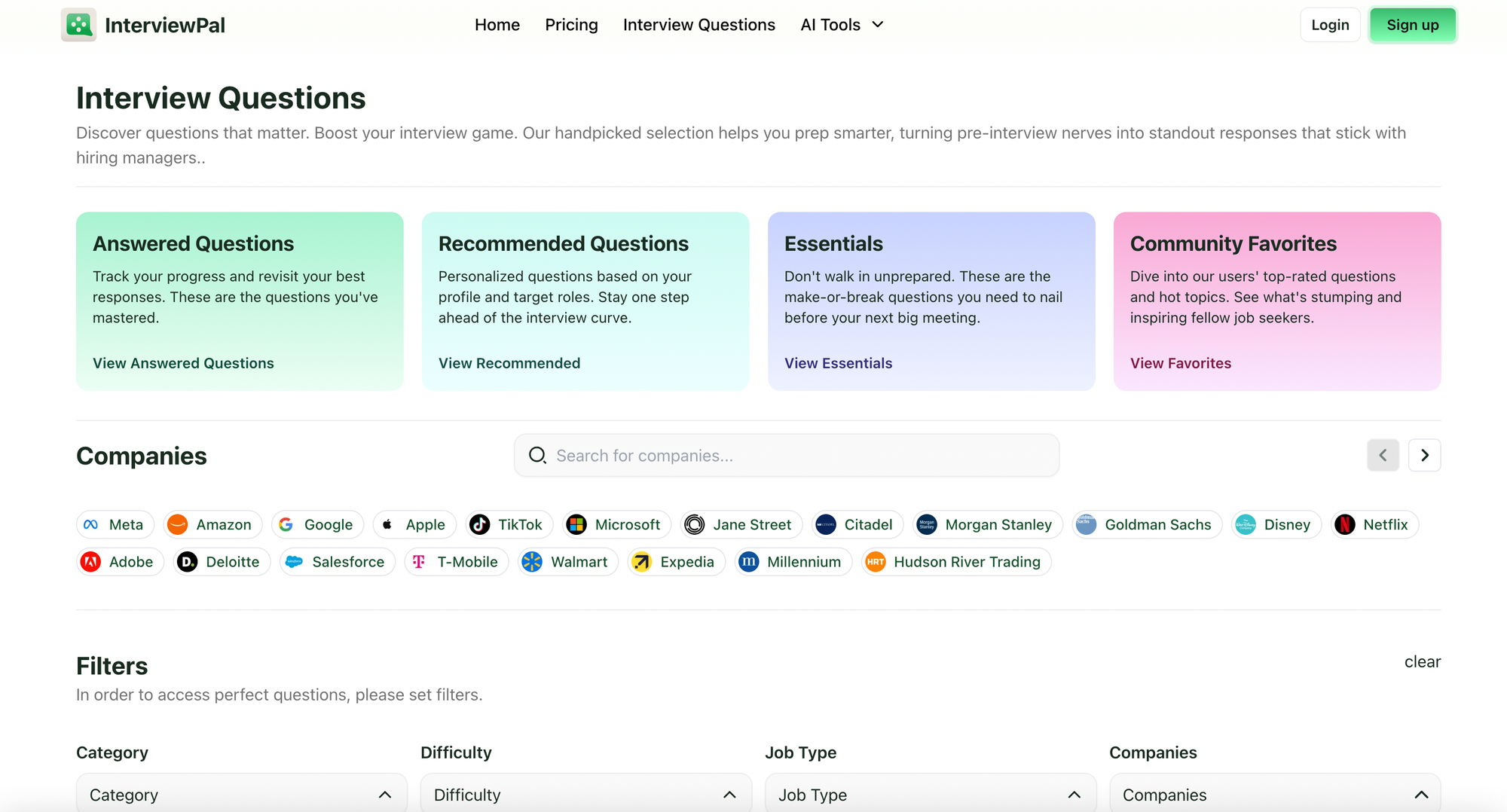Launching a product isn't just about picking a date and making announcements. When interviewers ask about your launch strategy, they're looking to understand how you navigate complexity, manage risk, and transform ideas into market success.
How to Set the Stage?
Let's dive into what separates outstanding launch strategies from basic project plans. The key? Understanding that product launches are ecosystems, not just events.
Starting with Smart Questions
"The best launches I've seen started with deep market understanding," says a product leader from a top-tier tech platform. "Without it, you're essentially launching with a blindfold on."
Here's where smart program managers focus first:
Market Validation Essentials
- Deep user problem mapping
- Competitive positioning analysis
- Target audience profiling
- Success metric definition
The Reality Check List
- Market timing assessment
- Resource availability mapping
- Technical feasibility validation
- Team bandwidth evaluation
Building Your Strategic Framework 🎯
Phase 1: Pre-Launch Foundation
Strong program managers start with:
- Clear success metrics tied to business goals
- Risk assessment and mitigation plans
- Resource allocation strategy
- Stakeholder communication framework
"The groundwork phase often determines launch success," notes a program manager who's shipped products reaching millions of users. "Miss these fundamentals, and no amount of execution excellence can save you."
Phase 2: Launch Readiness
Critical elements include:
- Technical infrastructure scaling plans
- Support team preparation
- Marketing asset development
- Sales enablement materials
Phase 3: Execution Framework
Key components:
- Phased rollout strategy
- Monitoring systems setup
- Feedback collection mechanisms
- Quick response protocols

Making Teams Work Together Cross-Functionally
Success requires seamless coordination across:
- Product/Engineering: Feature readiness
- Marketing: Message alignment
- Sales: Pipeline preparation
- Support: Resource scaling
- Legal: Compliance verification
Risk Management: Preparing for the Unknown
Smart program managers plan for:
- Technical Challenges
- Server load spikes
- Integration issues
- Performance bottlenecks
- Market Risks
- Competitor responses
- User adoption barriers
- Pricing sensitivity
- Operational Risks
- Resource constraints
- Timeline pressure
- Quality assurance
The Communication Blueprint
Internal Alignment
- Weekly status updates
- Daily standup meetings
- Real-time issue tracking
- Decision log maintenance
External Communication
- Customer communication plan
- Press strategy
- Social media framework
- Community engagement approach
Metrics That Matter
Track these key indicators:
- User adoption rates
- Technical performance metrics
- Customer satisfaction scores
- Revenue impact measures
- Support ticket volumes
Post-Launch Excellence
The first 30 days are crucial. Plan for:
- Daily performance monitoring
- User feedback analysis
- Quick bug fixing cycles
- Feature adjustment decisions
What Should You Not Do?
- Overlooking Market Context : Don't jump straight to execution details without showing market understanding.
- Ignoring Stakeholder Management : Remember that launches affect entire organizations.
- Missing Risk Management : Show you've thought through what could go wrong.
- Forgetting Post-Launch : Plans The launch is just the beginning.
Real-World Application
Consider framing your response like this:
"My launch strategy starts with three core pillars: market validation, cross-functional readiness, and risk management. Each pillar has specific success metrics and ownership."
The Differentiator: Adaptability
Program managers who excel at launches know that plans will change. Show how you:
- Build flexibility into timelines
- Create contingency plans
- Maintain team momentum
- Adjust to market feedback
Resource Optimization
Smart allocation includes:
- Technical infrastructure
- Team bandwidth
- Marketing budget
- Support resources
Timeline Management
Structure your launch timeline with:
- Clear milestones
- Dependencies mapped
- Buffer periods
- Go/no-go criteria
The Bottom Line 🎯
Great product launches balance ambition with practicality. They require:
- Strategic vision
- Tactical excellence
- Team alignment
- Risk awareness
Interview Success Strategy
When answering this question:
- Start with market understanding
- Show strategic thinking
- Demonstrate practical knowledge
- Include risk management
- Highlight communication plans
Learning Through Experience
Each launch offers unique lessons. Consider sharing:
- Past challenges overcome
- Unexpected successes
- Team dynamics insights
- Process improvements
Some Answers From Our Top Performing Program Managers
- "Our team was launching a mobile payment feature. I started with beta testing across three user segments, each with different transaction patterns. This early segmentation helped us identify performance bottlenecks before full launch."
- "At my previous company, we faced a tight deadline for our analytics dashboard launch. I prioritized core features over nice-to-haves, set up daily cross-functional standups, and launched in phases – starting with power users who could provide quick feedback."
- "I led a B2B platform launch where adoption was key. We created a 'lighthouse customer' program, selecting five major clients for early access. Their feedback shaped our full launch strategy and gave us compelling case studies."
- "For our API marketplace launch, I focused on developer experience. We ran a two-week beta with external developers, hosted daily office hours for feedback, and iteratively improved documentation before the public launch."
- "When launching our team collaboration tool, I noticed competing priorities between sales and engineering. I created a shared success metrics dashboard, aligning both teams around user adoption rates and performance benchmarks."
- "Our e-commerce feature launch taught me about scale. We planned a gradual rollout across regions, monitoring server loads and user feedback. This helped us optimize performance without risking platform stability."
- "For a critical security feature launch, I implemented a three-phase strategy: internal testing, trusted customer beta, and staged rollout. Each phase had clear go/no-go criteria based on security audits."
- "Leading a CRM integration launch, I prioritized data migration success. We ran parallel systems for key accounts, established clear rollback procedures, and maintained hourly checkpoint meetings during the transition."
- "Our mobile app redesign launch focused on user experience. I structured a soft launch with 5% of users, gathered feedback through in-app surveys, and made UX adjustments before expanding to our full user base."
- "When launching a premium subscription tier, I coordinated between product, billing, and support teams. We created detailed upgrade paths, set up specialized support queues, and monitored conversion metrics hourly."
Moving Forward..
The product launch landscape keeps evolving. Show awareness of:
- Digital transformation impact
- Remote team coordination
- Global market considerations
- Emerging launch channels
End your response by emphasizing your adaptability and continuous learning mindset. Remember, interviewers want to see both strategic thinking and practical experience in action.
This comprehensive approach shows you understand the full scope of product launches while maintaining focus on what matters most: delivering value to users and business success.
Practice More...
Truth is, great answers come from practice and feedback. InterviewPal's platform isn't just about memorizing responses - it helps you build that muscle memory for structured, compelling stories. Hop on the platform, try different approaches to the same question, and watch as the AI coach helps tighten your responses. It's the best tool out there for behavioral interview questions.
Best part? You'll build a toolkit of experiences you can mix and match for different behavioral questions. At $5/month, it's basically trading one fancy coffee for better interview confidence. Start practicing today and turn those interview butterflies into your secret weapon.



